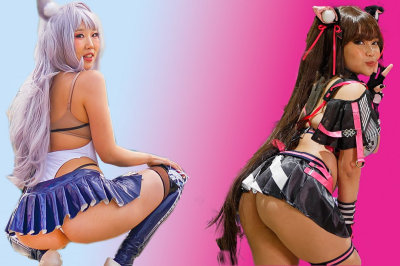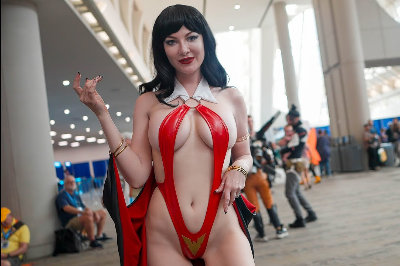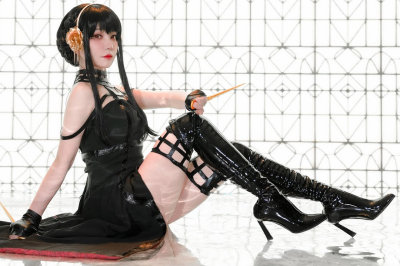IN THE CUT - Q&A with director Jane Campion, Meg Ryan and Mark Ruffalo
With Jane Campion (director/co-screenwriter), Meg Ryan starring as Frannie Avery and Mark Ruffalo as Detective Malloy
What first drew you to Susanna Moore's book Jane?
CAMPION: I read the novel, around 1996 but it wasn't by any means with a view to finding material for a film. It was just a friend saying to me that they'd read this pretty amazing book and me being curious. I borrowed her copy and read it in one sitting. I was really taken by the story and I loved Susanna's prose style. It was really fresh for me, the protagonists felt really familiar, because often that genre of detective story feels like it belongs to the 1950s. Frannie felt like someone I know well. I love her poetry, and the fact that she comes up against this world of detectives that were very authentically drawn, with that language that they used and how crude and brutally honest they were at times. In a way it's attractive when people have that honesty, that was really interesting and what attracted me to the story. I also thought that the actual structure and machinations of the story were really good, so that you really didn't know what was going to happen.
Did it, as some have said, take great courage for you to take on this role Meg?
RYAN: I didn't really feel like that. I felt I was in such sure hands with Jane that I didn't feel it needed some extreme amount of bravery on my part to trust her. I loved the script, and I loved her sensibility. But I do think that the character is extremely brave. We talk about her often as a warrior, and she's a very unlikely person to risk her heart for a guy, and I thought that was the thing that I felt needed a lot of bravery to do. She's somebody who's so much in a kind of remission, so broken hearted and not anybody who was likely who was able to connect with someone as extremely and as beautifully as she does with Detective Malloy.
Were you scared by your character Mark?
RUFFALO: It scared the hell out of me, I didn't have any common ground with Malloy, I didn't know how to access that character really. I didn't feel it was close to me, or easily available to me, so it proved to be really daunting. So yes it did scare me.
The interesting thing is that beneath this brazen and rather crude exterior he is quite a sensitive soul, isn't he?
RUFFALO: That's what I thought was most interesting about him. On the outside, just to survive in the job that he does, he has to maintain a sort of armour. But on the inside is a whole other person who has longings that are outside of the realm of his class or his social boundaries. When I finally asked Jane why she cast me in this part, she said it was because she was interested in my interior work. What I would bring counter to what our first impressions are of this guy. That was something that we were always working on.
Does the plot reflect the modern female dilemma do you think?
CAMPION: I think the story gave us the opportunity to explore some of the situations for women today, who are dealing with both their independence and also the idea that their lives are built around finding and satisfying the romantic models that we grew up with. Being independent and self-sufficient and also finding love in a relationship with a man. I think the story gives us an opportunity to see how that model falls short for us and creates an enormous amount of grief at how women postpone their life in a way. Thinking that if they're not with a partner then it doesn't really count, that they're an unloved person, an unloved woman still searching for her prince.
RYAN: It's interesting to have this film be a forum for this discussion, because if it's unexpressed it's even more frustrating. I know a lot of my friends have seen the movie and deeply relate to that aspect of it - that the romantic myths don't apply to them and how heartbreaking that can be if you feel alone with that idea.
Did the level of intimacy of the love scenes prove daunting for you?
RYAN: Again I felt very well taken care of. It's not a day you look forward to when you see it coming up on the schedule. We did it right at the end of shooting, but in the end it was a really protective environment and it was very choreographed, and we knew every shot and every angle. Jane was incredibly collaborative about it.
Are you concerned about the public reaction to seeing you in such raunchy scenes?
RYAN: I'm not into any reaction to whatever idea of me is out there. I don't really think about it that much, truthfully.
This script seems a real change though, is it the sort of thing you get offered from time to time?
RYAN: I've never read anything like it. This character is a really interior person and I know that Jane is interested in expressing interior life on screen, and has always found different visual languages to do that, and they are so different in all her movies. So it was a cool opportunity, I'd always loved movies from the 70s where they had these anti-heroes, I felt she really hooked into that type.
Were you concerned by the degree of violence - implied or otherwise - that was necessary in a story of this sort?
CAMPION: There's really not much on-screen violence in the film, but what there was I found difficult, even the stunt where Meg's character gets hit by the taxi. I was in a torment by that. A person could really get hurt! That was my worst day, for real. There was a moment when Meg's stuntwoman was just lying there and I realise now that she was waiting for me to say 'cut!' but at the time I thought she was dead. I was getting freaked. Someone else said 'cut', and up she jumped. So actual violence has no attraction for me at all.
The film does show the consequence of violent acts though, doesn't it?
CAMPION: It wasn't very hard to toss blood around and it's a way you put your mark on it, as a contribution to this genre of filmmaking. In fact all the on-screen violence is in a slightly Charlie Chaplinesque way in the skating sequence, which I guess is very violent. But it's not really happening, it's an unconscious way of putting strange elements together. For the scene in the laundry, which is probably the messiest one, we had our real forensic expert there and I had some corny ideas of what they might do. He told me he could do it, but it wasn't how they really went about it. I said 'okay, you show me what you would do with this crime scene'. So we just set up the body parts where they were supposed to be, and he did what he would normally do and had his own dialogue for the whole thing. I loved that, I would never have imagined anything so dry or matter of fact.
Given the bleak mood of the film, what was the mood like on set?
RYAN: We had a really happy set - it was hilarious really.
CAMPION: Sometimes the days when you have to do the grisliest stuff are the ones where you wet your pants laughing. The atmosphere of the piece was a concern for me as director, it's one of the requirements of the genre you have to be specific about. One of the limits we put on ourselves in terms of the style of the performance was that there would be no indicating. I just felt exhausted by 'indicating acting'. This is not how people behave, if someone was to see that tattoo they wouldn't want anyone to know they had a feeling about it, and you probably wouldn't know. So I made a rule, no indicating, which I sometimes regretted because they stuck to it very firmly. I kept saying that we were the filmmakers, we'd make it clear that you've seen that and also make it clear that you're not showing him you've seen it. That way it was more as we are in life, more complicated and observed I guess.
There have been many great New York movies, did you consult any to give you pointers on your visual style?
CAMPION: I looked at a lot of films. Of course TAXI DRIVER is a film that everyone who's made a film set in New York City has looked at. But I think the thing you remember about it - there are so many - is the poetic way it's filmed. It's honesty in its observation. It's really about observation, that's the purity of where it all begins. So I was looking back at that inspiration, I wanted that too. It's observation of people like the writers have in their prose. This is my visual prose.
IN THE CUT is out to rent and buy on DVD and video on 1 March 2004 from Pathé Distribution.
Question & Answer Text Copyright Pathé Distribution



